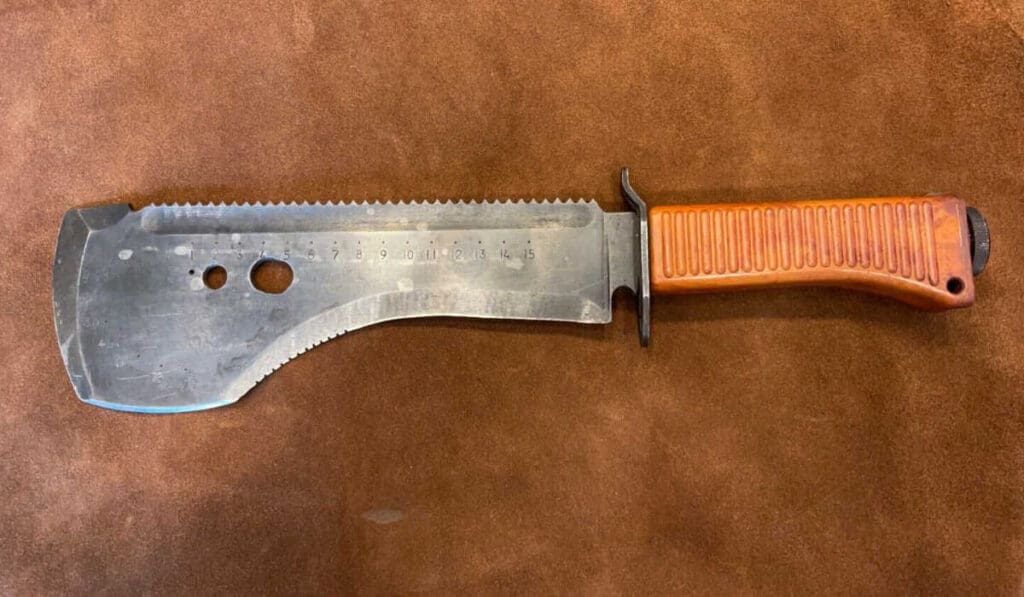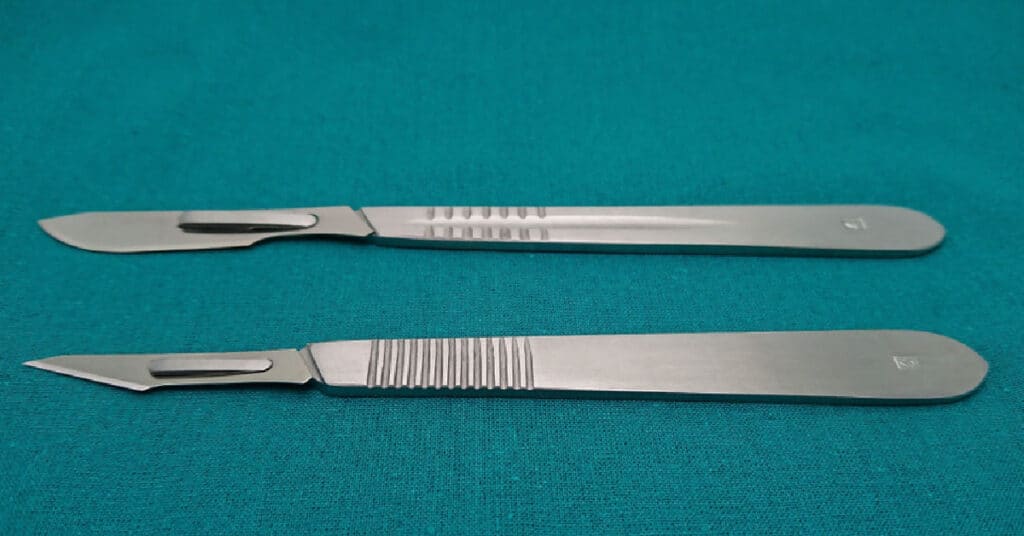Last updated on October 21st, 2023 at 01:11 am
As an Amazon Associate I earn from qualifying purchases.
Michigan is a relatively knife-friendly state, especially after the October 2017 amendment that made significant changes to the existing law. As a knife owner, it is crucial to stay on the cutting edge, so this guide will summarize everything you need to know about Michigan knife laws.
Our Top Rated “50-State-Legal” Knives
*These knives are listed based on their broad legality across states, but always consult your local laws before making a purchase.
Does Michigan Have Statewide Preemption on Knife Laws?
Michigan does not enforce statewide preemption on knife laws, implying that local municipalities can establish additional knife regulations.
Therefore, it is important to consult a lawyer or law enforcement personnel to educate you about specific knife laws in any local town you plan to visit in Michigan.
Legal Knives in Michigan
In October 2017, the prohibition on switchblades and other automatic knives was revoked. However, any knife could potentially be viewed as a “dangerous weapon” depending on the intent of use.
Here’s a list of legal knives in Michigan:
- Pocket knives
- Switchblades and other automatic knives
- Butterfly or Balisong knives
- Stabbing knives like daggers, dirks, and stilettos
- Throwing knives
- Bowies and other large knives
- Disguised knives
- Undetectable knives
- Gravity knives
Illegal Knives in Michigan
Michigan does not forbid or disallow the ownership of any type of knife, but there are restrictions on carrying certain knives.
Michigan Knife Definitions
To better understand Michigan knife carry laws, familiarize yourself with the following definitions:
- Double-edged, non-folding stabbing instrument: A double-edged, non-folding stabbing instrument is exclusive of a knife, tool, implement, arrowhead, or artifact manufactured from stone.
- Dangerous weapon: This term denotes any weapon carried with the intent to use it against someone for bodily harm. The prosecution must prove intent, meaning any knife can be considered a dangerous weapon if carried with harmful intent.
Michigan Knife Carry Laws
With these definitions in mind, let’s delve into Michigan knife carry laws:
- It is illegal to carry with unlawful intent a dirk, dagger, razor, stiletto, or a knife with a blade longer than three inches.
- You can open carry all legal knives as long as you do not have the intention to harm others.
- You can carry a hunting knife, open or concealed, as long as it’s adapted and carried as such.
- It’s illegal to conceal carry a double-edged non-folding stabbing instrument of any length, or any other dangerous weapon on or about a person, except in their dwelling house, place of business, or on other land possessed by the person.
- Carrying a knife, regardless of its length, in a vehicle is illegal unless it’s on your property or place of business.
Exemptions
Michigan knife carry laws apply to everyone except:
- Peace officers
- Employees in public or private correctional centers
- Military officers on active duty
- Security guards and other security employees employed by the state
- Members of the National Guard, US military reserves on active duty or doing a drill
- Any organization authorized by the law to receive or buy weapons from the state or country
- Motor carrier officers.
Michigan Knife Length Laws
Michigan law states that carrying a knife with a blade longer than three inches is illegal if you intend to use it unlawfully or harm others. This implies that you can carry any knife regardless of length if you do not have ill intent towards others. However, carrying any knife, regardless of length, in a vehicle is illegal unless it’s on your property, land, or business.
Michigan Knife Laws by Demographic
The knife carry laws in Michigan apply to everyone regardless of age, with no specific age restrictions on knife ownership or carry. However, there are restrictions on carrying knives in schools, and it’s illegal for a pupil to have a dangerous weapon in school, at school events, or on school transport.
Michigan State Knife Law References
Official Sources of Michigan’s Knife Laws
- Michigan Compiled Laws (MCL): The primary source for Michigan’s knife laws is within the Michigan Compiled Laws (MCL), specifically under sections MCL 750.226 and MCL 750.227 which discuss the legality of carrying certain types of knives.
- Michigan Legislature’s Official Page: The official page of the Michigan Legislature provides the legal codes concerning knife laws in Michigan.
- State of Michigan’s official website: This website provides information on amendments to the Michigan Penal Code concerning knives.
Significant Court Cases
| Case Name | Summary |
|---|---|
| Michigan v. Mata | The defendant was charged for possessing a Kershaw Speedsafe knife, which the Michigan law at the time considered to be an automatic knife. The court ruled in favor of the defendant, finding that the Kershaw Speedsafe knife did not fit the definition of an automatic knife under the law, hence leading to the dismissal of the charge. |
| People v. Vaines | The defendant was convicted for carrying a concealed jackknife under Section 750.227 (1) of Michigan law. This case reached the state supreme court and is one of the earlier significant cases involving knife laws in Michigan. |
Timeline of Major Changes in Michigan’s Knife Laws
- 1931: Initial enactment of Act 328 effective from September 18, 1931, which laid down the basic framework for knife laws in Michigan.
- 1973: Amendment Act 206 effective from March 29, 1974, which brought changes to the existing knife laws.
- 1986: Amendment Act 8 effective from July 1, 1986, brought further changes to the knife laws.
- October 2017: Public Act 96 of 2017 repealed the prohibition on switchblades and other automatic knives, making spring-assisted knives legal. This amendment significantly made Michigan a more knife-friendly state.
- 2021: A bill was introduced to revise rules on carrying a knife in Michigan, and on October 27, 2021, the Michigan Knife Rights Act (HB 4066) was passed, which aimed at further relaxing knife laws in the state.
Conclusion
Understanding Michigan’s knife laws may require some time and effort, especially given the lack of statewide preemption which allows for local variations in knife laws. It’s always advisable to consult with legal professionals to ensure compliance with all state and local laws regarding knife ownership and carry in Michigan.
Do Sheepsfoot Blades Have A Purpose? (Cuz They’re Ugly…)
Spetsnaz Machetes – Blades Of The Russian Special Forces
What Is The Actual Purpose Of A Spear Point Knife Blade?
CRKT CEO Review – Coolest, Most Worthless Knife Ever?
How Sharp Is A Scalpel? (Is It Sharper Than A Razor?)
Can You Shave With A Knife? (Yes, Here’s How)
As an Amazon Associate I earn from qualifying purchases.










